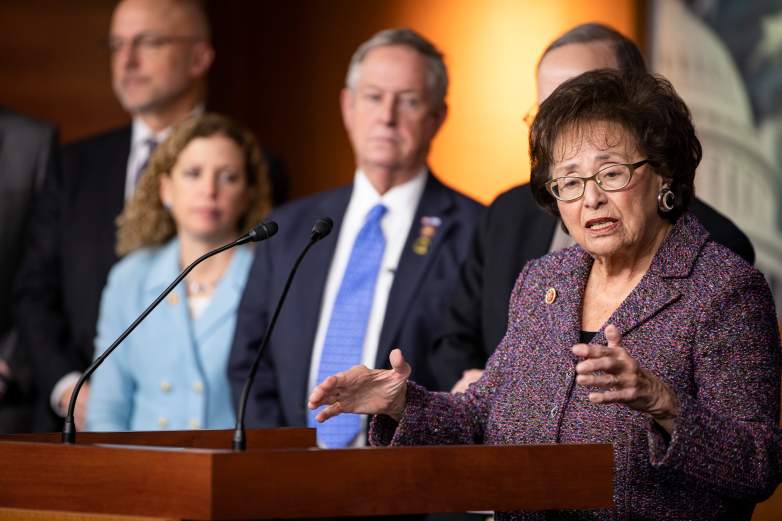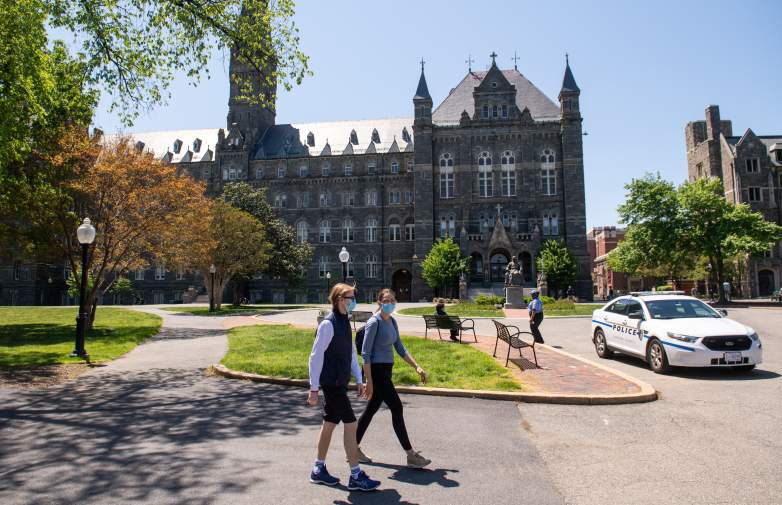
The HEROES ACT, a comprehensive stimulus package that aims to provide financial relief for Americans during the coronavirus pandemic was passed Friday by House Democrats Friday, but it’s in no way a done deal.
The sweeping provisions outlined in the 1,815 page bill outline a proposal for student loan forgiveness in certain circumstances, as well as waiving payment requirements through September 2021.
In order for that to happen, the HEROES ACT needs the Republican-led Senate to vote to pass the bill, and President Trump would have to sign it, but according to Sen. Lindsay Graham (R-S.C.) the legislation was “definitely dead on arrival,” in its current form as far as Republican lawmakers were concerned.
Graham told Full Court Press that’s because parts of the proposed bill have nothing to do with coronavirus, such as sending stimulus money to “illegal immigrants,” and giving what amounts to a pay raise to some people receiving unemployment benefits — but he also said there is some common ground.
The HEROES ACT Would Cover or Forgive up to $10,000 in Student Loans For Some

GettyRepresentative Nita Lowey (D-NY) speaks about the things she witnessed on a trip to Israel and Auschwitz-Birkenau as part of a bipartisan delegation from the House of Representatives on January 28, 2020 in Washington, DC.
The Health and Economic Recovery Omnibus Emergency Solutions Act, or HEROES ACT, would forgive or pay lenders up to $10,000 per student loan for both federal or privately held student loans, according to the Education Provisions portion of the bill.
However, not everyone is eligible for loan forgiveness. In fact, only a small percentage of people would be.
While the original HEROES ACT called for student loan forgiveness of up to $10,000 for any “borrower,” an amendment was written by Rep. Nita Lowey (D-NY) who changed the word “borrower” to “distressed borrower,” which significantly decreases the number of people who would actually receive the benefit.
Distressed borrowers are those who prior to March 13 were already delinquent or in default on their student loans, or already in payment arrangements with their lender due to financial hardships.
According to Lending Tree’s Student Loan Hero website, 44.7 million Americans have student dept. Before the pandemic, about 11% of those people were in default.
On average student loan payments cost between $200 and $300 per month. The average student dept from public or nonprofit colleges in 2019 was $29,000. In 2018 the average student dept from private colleges for the 75% of students who took out loans was $32,300.
Payments for Student Loans Would Be Suspended Through September 30, 2021

GettyThe campus of Georgetown University is seen nearly empty as classes were canceled due to the coronavirus pandemic, in Washington, DC, May 7, 2020. – The cost of a university education in the United States has long been eye-watering, with a year costing tens of thousands of dollars.
But as the coronavirus crisis settles in, students — many of whom take out huge loans to finance their degrees — are wondering how to justify spending $70,000 a year on…. Zoom classes.
As an extension of the CARES ACT, another proposal in the HEROES Act is for loan repayment requirements to be suspended from March 13, 2020 through September 30, 2021. According to Forbes, the HEROES ACT expands on the CARES ACT by including FFEL-program federal loans and Perkins loans.
Once that time period is up, it would be followed by a 30 day suspension period through October in which no penalties or fees would be charged for late or missed payments that month, nor would late or missed payments be reported to creditors.
During that same year and a half from March 13, 2020 to September 30, 2021, no interest would accrue on student loans. Some student loan holders would be eligible for receiving federal money equal to the amount of interest that would’ve accrued during the payment suspension, but the money would be meant to be used to pay on the principal, according to the bill.
READ NEXT: Coronavirus Vaccine by September? Oxford Researchers Think So